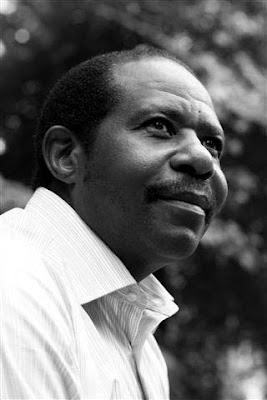Indictment for Omar al-Bashir
Is it too little too late?
>> July 12, 2008
 President Omar al-Bashir is finally going to have to take responsibility for his awful actions and be punished for the evil that he has done. At least I hope. I hope that he will be in trouble, that he will be held responsible and will be shown to the world for the awful man that he is. I just hope that something like this doesn't spar more violence in Darfur.. because, frankly, it has taken 6 years for the world to notice the killing and torture that has been happening; and, if a backlash was to occur, I think any reaction would devastatingly be way too late.
President Omar al-Bashir is finally going to have to take responsibility for his awful actions and be punished for the evil that he has done. At least I hope. I hope that he will be in trouble, that he will be held responsible and will be shown to the world for the awful man that he is. I just hope that something like this doesn't spar more violence in Darfur.. because, frankly, it has taken 6 years for the world to notice the killing and torture that has been happening; and, if a backlash was to occur, I think any reaction would devastatingly be way too late.
UNITED NATIONS (AP) — U.N. officials and diplomats said the chief prosecutor of the International Criminal Court will seek an arrest warrant Monday charging Sudanese President Omar al-Bashir with crimes against humanity and genocide in Darfur. (from the Associated Press article, click here).Omar al-Bashir deserves everything he gets. However, the worst part of it all is that it might not end with al-Bashir. He has followers, his goons.. and they may continue the hell that Mr. al-Bashir has inflicted on his very own people. I don't understand why it has taken so long for something to be done, the International Criminal Court is finally recognizing that war crimes have occurred, and that al-Bashir MUST be punished. The worst part is the world has seen things like this happen before, and if we do not stop them, and show the world and the evil men like Omar al-Bashir that the things he is doing ARE NOT OKAY, it will just keep happening. Someone needs to stand up for those people. For those children.
Darfur Conflict Facts:
- has been going on for 6 long years
- 300,000 people have died
- 2.7 million people have been displaced
- 1.8 million children have been affected
SaveDarfur.org has a post called "The Genocide in Darfur - Briefing Paper" that's worth checking out...
The following article was written in April 2006, by Mr. Paul Rusesbagina, the man that is portrayed in the movie Hotel Rwanda. In this article, he tells of how the "lessons of Rwanda" are being ignored in Darfur, and how the world has turned it's back on the region. It's awful.. and I think really, the worst part, is he wrote this over 2 years ago. And still nothing?
 Paul Rusesbagina
Paul RusesbaginaDarfur
In Sudan, the world ignores Rwanda's lessons.
by PAUL RUSESABAGINA
Sunday, April 9, 2006 12:01 a.m. EDT
History shows us that genocides can happen only if four important conditions are in place. There must be the cover of a war. Ethnic grievances must be manipulated and exaggerated. Ordinary citizens must be deputized by their government to become executioners. And the rest of the world must be persuaded to look away and do nothing. This last is the most shameful of all, especially so because genocide is happening again right now in the Darfur region of Sudan, and the world community has done precious little to stop the killings.
What is happening in Darfur is exactly what happened in my home country of Rwanda, which was left to choke on its own blood from April to July of 1994.
The United Nations took virtually no action during the genocide. A detachment of well-equipped peacekeepers, made up of less than one-twentieth of the American troops now stationed in Iraq, could have easily stopped the killings without risk and sent the powerful message that the world would no longer tolerate mass murders of civilians, a real expression of the phrase "Never Again." But this simple act was deemed, then and now, to be somehow beyond the power of the United Nations, the United States, NATO, the European community and everybody else with the real power to stop another holocaust.
There are now about 7,000 soldiers from the African Union stationed in Sudan, which is mostly an exercise in public relations. They lack helicopters, jeeps and firepower. More importantly, they lack a sense of purpose. There are no clear rules of engagement and many of the soldiers appear more interested in collecting their per diem payments than inserting themselves between the government-backed Janjaweed militia and their victims in the farming villages. The African Union recently said it will stay into September, and a handover to the United Nations may take place at that point. By that time, the genocide will have lasted for three years with a likely half-million dead, or more.
To be sure, part of the debate involves the fear of an Iraqi-style campaign of insurgence against any humanitarian or peacekeeping force deemed "too Western" by the Sudanese government and the Janjaweed thugs. But we should not let ourselves be cowed by these threats. Will we allow murderers to intimidate us away from doing the right thing and saving lives?
 Historically, I am sorry to say, the answer has been "yes." When modern genocide has loomed, the United Nations has shown more concern for not.
Historically, I am sorry to say, the answer has been "yes." When modern genocide has loomed, the United Nations has shown more concern for not.
Such a force would not require endless dickering, delicacy and will-testing; it should be made up of no more than 10,000 troops and deployed only in extreme situations, because its real power is not in its gun barrels--it is in the message to genocidal regimes that the world will refuse to overlook atrocities. This would have stopped the Rwanda tragedy from happening, probably without a shot being fired. It could now stop Darfur from getting worse, with similar ease. History offers us another lesson about genocides: The apologies, recriminations and resolutions of Never Again usually begin after the genocide is safely finished and it becomes safe once more to mourn the lack of action. That should not happen this time. The proposed extinction of an entire race should now be considered an override clause to the rule of national sovereignty. Rwanda is over and everybody mourns it comfortably. We ought not to wait until Darfur is over to start saying Never Again yet again.
Mr. Rusesabagina is the author, with Tom Zoellner, of "An Ordinary Man," published this week by Viking. The film "Hotel Rwanda," was based on his personal story as a hotel manager who saved the lives of numerous Tutsis by offering them refuge in the Hotel Milles Collines in Kigali, Rwanda. A recipient of the National Civil Rights Museum's 2005 Freedom Award, he lives in Brussels. (article from this website: http://www.opinionjournal.com/extra/?id=110008204)



























1 comments:
soooooooooooooooooo annoying
Post a Comment